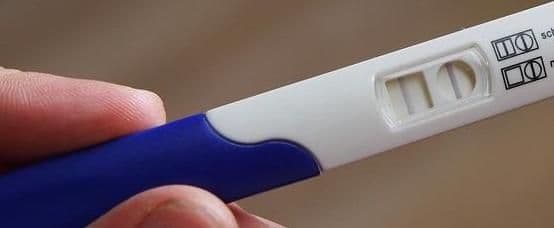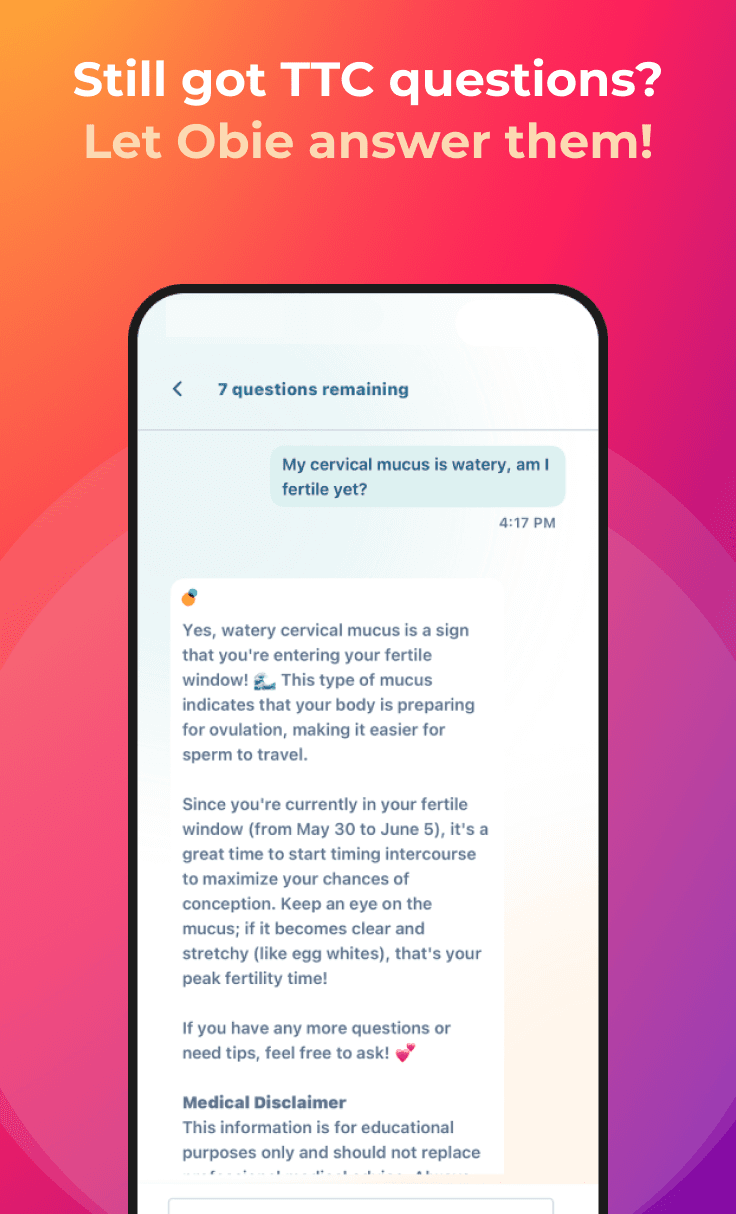Home Pregnancy Tests: All Your Questions Answered
Prenatal Testing
Obie Editorial Team

Q: What is hCG?
A: hCG is human chorionic gonadotropin. It is a hormone produced by the placenta during pregnancy. Home pregnancy tests (HPTs) are designed to detect it.
Q: Why does the hCG level of the test matter?
A: Basically the pregnancy tests that detect the lowest number of units should be more sensitive and give you the earliest results.
Q: How do home pregnancy tests work?
A: Home pregnancy tests (HPTs) are designed to detect hCG, a hormone released by the placenta right after the embryo begins implanting into the uterine lining. The hormone is released in urine.
Q: How accurate are home pregnancy tests on the first day of a missed period?
A: A JAMA article said the highest possible screening sensitivity for an hCG-based pregnancy test conducted on the first day of a missed period is 90 percent, as 10 percent of women may not have implanted yet. The authors estimate that the highest possible screening sensitivity of a home pregnancy test by one week after the first day of the missed period is 97 percent.
Q: How soon after ovulation can I test?
A: The earliest you can get a positive result on the most sensitive pregnancy tests is seven days after ovulation. Implantation needs to occur before hCG is produced and that generally happens between 6-12 days post ovulation, usually by 10 days after. For this reason, it makes economic sense to wait until 10-12 days after ovulation, but even then a significant percentage of women who are indeed pregnant will still show a negative result. If you have not had an hCG injection (common infertility treatment, brands include Profasi, Pregnyl, and Novarel), you can believe the positive, but you might get a false negative. If your period is late, test again. Your hCG levels should double every 2-3 days and many people won't have a positive HPT until the first day of a missed period or even a few days later.
Q: How do I perform the test?
A: You should use midstream urine, meaning you should pee a little first and then either hold the test stick in your urine stream or use a collection cup. If you would like to collect urine in a cup even though you bought a stick test, you need to hold the absorbent tip of the stick in the cup of urine for 5-10 seconds. Otherwise, follow the directions with the test.
Q: How long do I need to hold my urine?
A: That depends how long after ovulation you are testing. If you are testing early, a four-hour wait is a good idea. The more hCG you have in your system, the less long you'll need to hold before trying to test.
Q: How do I read the test result?
A: You should check the instructions that came with the HPT as there are some differences between the tests. Most of the tests have two windows — one that tells you the test has been performed correctly (control), and one that gives you the positive or negative result. In the result window, the tests usually give a line or a plus. For the line tests, any colored line, no matter how faint, in the result window during the allotted time is a positive result. (This is different from most of the ovulation tests where the result line needs to be as dark or darker than the control line.) Some of the tests give a plus or minus result. In those tests you expect one line, looking like a minus sign (-), in the result window for a negative, and two lines looking like a plus symbol (+) if you are pregnant. It is common for one line in the plus symbol to be lighter than the other — any plus sign, no matter how varied the line colors, should be considered a positive result. All HPTs should be read within the time mentioned in the instructions and then thrown out to avoid confusion over evaporation lines.
Q: Can I use an HPT if I had an hCG injection (such as Profasi, Pregnyl or Novarel)?
A: You can, but you should wait 7-14 days after your last injection before the shot is out of your system. If you test too soon, you might get a false positive. Wait 14 days after a 10,000 IU injection, 10 days after a 5,000 IU injection, or 7 days after a 2,500 IU injection.
Q: Can fertility medications such as Clomid, Serophene, Gonal-F, Follistim, Humegon, Pergonal, Repronex or Fertinex cause false positive results on HPTs?
A: The only fertility medication that can cause a false positive on a home pregnancy test is one that includes hCG (see question above).
Q: Can progesterone supplements cause a false positive HPT?
A: No. Home pregnancy tests only check hCG levels, not progesterone. They are completely different hormones.
Q: What should my hCG level be?
A: An rounded-off average would be about 25 mIU at 10 DPO 50 at 12 DPO, 100 at 14 DPO.
Q: What if I took a test and it was negative, but when I looked at it an hour or later I saw a faint line?
A: You may be pregnant and just didn't have a high enough level of hCG to trigger the test within the usual time frame; however, it also could be the way that test reacts over time, so you really need to test again either way in order to be sure of the result. Some brands indicate that an "evaporation line" will appear if the test is left to sit. Generally speaking, you should not rely on any positive result that does not show up within the time limit stated in the test instructions. All brands have the possibility of an evaporation line or chemical line.
Q: Which is more accurate, a urine test or a blood test?
A: A blood test is more accurate, but not necessarily more sensitive. A lot depends on the lab. A quantitative blood test, usually called a beta hCG test, measures the exact units of hCG in the blood. That means it will detect even the most minimal level. There is another type of blood test sometimes called a qualitative hCG. This is a test that simply gives a yes or no answer to whether you are pregnant. Just like urine tests, labs vary as to what is considered a positive pregnancy test. Common cutoffs for positive are 5, 10, and 25 units. A level under 5 is considered negative. A test that is only triggered at 25 units of hCG is not any more sensitive than several of the urine HPTs.
Q: Are urine tests at the doctor's office any more sensitive than home tests?
A: They are usually equivalent to the first tier of the home pregnancy tests list above -- reading an hCG level of 15-25 mIU as positive. In fact, they are often the same tests listed in the chart, only with less packaging.
Q: How accurate are home pregnancy tests on the first day of a missed period?
A: An October 2001 JAMA article (JAMA. 2001;286:1759-1761) said the highest possible screening sensitivity for an hCG-based pregnancy test conducted on the first day of a missed period is 90 percent, as 10 percent of women may not have implanted yet. The authors estimate that the highest possible screening sensitivity of a home pregnancy test by one week after the first day of the missed period is 97 percent.
Q: Can I tell if my hCG level is doubling by retesting with an HPT and looking for a darker line?
A: No. You may get a darker line as your pregnancy progresses, but the HPT is not accurate enough to give you a full picture. Only a quantitative beta hCG blood test can tell you this. Best to have the blood tests performed at the same lab since standards vary.
Q: What if my HCG levels aren't doubling every two to three days from a quantitative blood test?
A: It doesn't necessarily mean something is wrong, but it warrants further exploration including an early ultrasound (6 weeks LMP, 4 weeks after ovulation). Slow-rising hCG can be related to impending miscarriage or ectopic pregnancy. One important thing to remember is that on average hCG levels double approximately every two days from 4-6 weeks LMP, then doubles every 3 days when the level is 1600-6000, then the doubling slows to every 4 days or so. Levels peak a week or two before the end of the first trimester (14 weeks LMP) before declining in the second trimester.
Q: If I am pregnant, how long will my doctor monitor hCG levels.
A: Many doctors will do two or three hCG levels to confirm doubling and stop there. Most others will stop after a fetal heartbeat is detected since hCG levels vary greatly and doubling begins slowing down. After a heartbeat is seen or heard, the chance of miscarriage drops to 16% before 6 weeks LMP, 5% from 7-9 weeks, 1-2% after 11 weeks.
Q: I had a positive HPT, but my period started. What happened?
A: The only way to know for sure is to get a quantitative hCG blood test run. If you were pregnant but are miscarrying early, you may still have some level of hCG on the first day of bleeding -- but you need to go for the test as soon as possible. It is also possible that you got a false positive on the pregnancy test, in which case you should call the manufacturer with the lot number and try to get your money back.
Q: I have all the symptoms of pregnancy and got a faint positive on a home pregnancy test. My qualitative (yes/no) hCG blood test came back negative. Am I pregnant or not?
A: It may be that the qualitative blood test is less sensitive than the home pregnancy test, so it would be a good idea to get a quantitative hCG (measures the actual hCG level). Also, be sure you are reading the test within the time suggested in the instructions to ensure you are not seeing an evaporation line on your home test.
Q: Can you get a positive HPT with a lower level of hCG than the test manufacturers say they detect?
A: Yes. Most of the tests can detect lower levels of hCG than what is listed in this FAQ, but the levels printed here are the ones quoted from the manufacturers.
Q: Can I be pregnant and not get a positive HPT?
A: Yes. Most women will register on HPTs by the time they are a few days late for a period, but not everyone will. If you suspect you are pregnant, you should see your doctor for a quantitative hCG test no matter what result you get from an HPT.
Q: My beta was 75 and I didn't get a positive on my HPT that is listed as reading a level of 50 or less, did I get a faulty test?
A: Not necessarily. The tests should read down to the level listed, but they don't always. It is possible the test was performed improperly, that urine was too diluted to give an accurate reading, or that test was not stored properly before use (tests that freeze, for example, are less likely to work).
Q: Can prescription or over the counter medication interfere with home pregnancy tests?
A: Medication will neither delay a positive result nor cause a false positive unless the medication contains hCG (Profasi, Pregnyl, Novarel). This includes pain relievers, antibiotics, etc.
Q: Do oral contraceptives/birth control pills interfere with home pregnancy test results?
A: No. One should get an accurate result on oral contraceptives. The hormones in the pill do not cause a false positive or a false negative result.
Q: Will recreational drugs or alcohol interfere with home pregnancy tests?
A: Drugs such as cocaine, marijuana, heroin, and alcoholic drinks will not alter the result of a home pregnancy test, but it is better to test when not under the influence.
Q: Can a urinary tract infection cause a false positive home pregnancy test?
A: No. Home pregnancy tests detect the hormone hCG, not byproducts of infection. Infections do not cause the hormones to be released. It is best to get the pregnancy confirmed by a doctor and have the UTI treated as soon as possible.
Q: Can stress cause a false positive result?
A: No.
Q: Which home pregnancy test is the best?
A: FertilityPlus does not recommend any specific test over another. For the most part, they are pretty equal. Consumer Reports does issue a ranking of tests.








